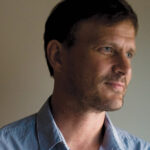Winter 2015
Letter From Ann Price
Feb. 13, 2015—Dear Vanderbilt University Medical Alumni, Vanderbilt Medical Alumni Reunion 2014 Recap Thanks to all who attended Reunion 2014, one of our largest VUSM reunions with over 1,100 attendees. I hope you enjoyed your time on campus. A special thanks to our class chairs and class gift chairs for making Reunion a wonderful event, including...
Donors Honor John W. Brock III, M.D.
Feb. 10, 2015—A Pediatric Urology Research Fund has been established in honor of Vanderbilt’s John W. Brock III, M.D., to support general research and fellows in pediatric urology. The funding is through the support from corporate and individual donors, including Bank of America led by Tennessee president John Stein, Delta Dental Plan of Tennessee led by president...
GAUDEAMUS IGITUR, NO. II (“Therefore, Let Us Rejoice”)
Feb. 10, 2015—Written by Andre Churchwell, M.D., Homage to John H. Stone, MD—Poet, Friend, Humanist, and Cardiologist— and John’s Poem “Gaudeamus Igitur: A Valedictory Address.” (1982) Let us rejoice in this celebration. Let us rejoice in this end of a Beginning and the beginning to a new end. Let us rejoice that the days of Healing can...
Alumni Profile: John Jernigan, M.D., ‘86
Feb. 10, 2015—Contagious Enthusiasm The outbreak of Ebola at a Texas hospital dominated the news in October 2014, as Americans anxiously watched to see whether the disease would spread beyond the two health care workers who contracted it from a dying patient. That was the setting during the two weeks that John Jernigan, M.D., ‘86, spent in...
Growing to New Heights
Feb. 10, 2015—In October, the Monroe Carell Jr. Children’s Hospital at Vanderbilt launched the Growing to New Heights fundraising campaign in support of a four-floor building expansion that will help advance the size and scope of the hospital’s specialized pediatric health care programs. Patients and their families, along with community supporters and Vanderbilt University officials, gathered to...
Camp offers safe haven for pediatric burn patients
Feb. 10, 2015—Children make up a large portion of the Burn Center’s patient population. The most severely injured children who require a ventilator go to the Pediatric Intensive Care Unit at Monroe Carell Jr. Children’s Hospital at Vanderbilt, while the less critical children occupy a special room in the Burn Center specially decorated and outfitted for these...
Alumni Profile: Atia Jordan, M.D., ‘09
Feb. 10, 2015—Sleep Specialist Lands Dream Job Among bleary-eyed pediatric residents, sleep was a common topic of discussion, but even more so for Atia Jordan, M.D., ‘09. “During my rotations, most people thought I was a sleep-deprived resident and just wanted more sleep,” she laughed. “But what I wanted was to dive deeper into sleep and how...
Alumni News
Feb. 10, 2015—To see Reunion photos, click here. 1960s Keller Carlock, M.D., ‘64, BA ‘60, HS ‘65, received the top regional award for service from the Atlanta Area Council of the Boy Scouts of America. A lifelong scout and former Council Camping Chair, he is a member of the Order of the Arrow Vigil, and of...
Principles of Healing Illness
Feb. 10, 2015—By Farhad Ismail-Beigi, M.D. I would like to share with my colleagues my accumulated knowledge on principles of healing the sick. This knowledge is based on my education, the teaching of my mentors, and my own experiences of practicing as a gastroenterologist at UPMC, Presbyterian and Shadyside Hospitals in Pittsburgh for the past 43 years,...
Amy Fleming, M.D., Takes Helm of Medical Student Affairs
Feb. 10, 2015—In 1993, Amy Fleming, a first-year medical student at the University of Virginia, was sitting at a table during a small group gathering at the home of Richard Pearson, M.D., the dean of student affairs, when she saw her future. It wasn’t a shout-it-from-the-mountaintop revelation. It was a comfortable, inner knowing kind of observation—a glimpse of...
Study: Balanced high-fat diet improves body composition, inflammation
Feb. 10, 2015—A diet designed for weight loss not only helps people shed unwanted pounds and keep them off, it also may reduce the risk of heart disease, diabetes and other degenerative conditions, in part by “turning down the heat” of chronic inflammation generated by excess adipose tissue (fat). Surprisingly, it may not be necessary to avoid...
Called to Serve
Feb. 10, 2015—Within days of arriving in Liberia in September 2014, Boris Pavlin, M.D., ‘03, cared for three patients with Ebola—a mother, father and young son. It was his first face-to-face contact with the rare and deadly infectious disease that was raging through West Africa. Pavlin, an epidemiologist with the World Health Organization, was stationed in Sinoe...
A nation takes notice
Feb. 10, 2015—Ebola virus disease, previously known as Ebola hemorrhagic fever, is caused by infection with four of the five Ebola virus strains, and can cause disease in humans and nonhuman primates (monkeys, gorillas, and chimpanzees). Ebola was first discovered in 1976 near the Ebola River in what is now the Democratic Republic of the Congo. Since...
High-dose flu vaccine more effective in elderly, Vanderbilt-led study shows
Feb. 10, 2015—High-dose influenza vaccine is 24 percent more effective than the standard-dose vaccine in protecting persons ages 65 and over against influenza illness and its complications, according to a Vanderbilt-led study published in August 2014 in the New England Journal of Medicine (NEJM). The multi-center study enrolled 31,989 participants from 126 research centers in the U.S. and Canada...
Brain surgery through the cheek
Feb. 10, 2015—Treating epilepsy often means drilling through the skull deep into the brain to destroy the small area where the seizures originate—invasive, dangerous and with a long recovery period. Five years ago, a team of Vanderbilt engineers wondered: Is it possible to address epileptic seizures in a less invasive way? They decided it would be. To...
Potential therapy for postpartum breast cancer investigated
Feb. 10, 2015—Nearly 25 percent of all breast cancers among premenopausal women occur within two to five years following a pregnancy. These postpartum tumors are more likely to spread or metastasize to other parts of the body, leading to an increased risk of death. A new study led by Rebecca Cook, Ph.D., assistant professor of Cancer Biology, and...
Q+A: Kristen Eckstrand, Ph.D.
Feb. 10, 2015—Kristen Eckstrand, Ph.D., a 2015 MD candidate, is the founder and co-director of the Vanderbilt Program for LGBTI (lesbian, gay, bisexual, transgender and intersex) Health. She is also chair of the Association of American Medical Colleges (AAMC) Advisory Committee on Sexual Orientation, Gender Identity, and Sex Development. She recently co-edited and co-authored a groundbreaking national...
Novel therapy eases stress of retinoblastoma treatment
Feb. 10, 2015—Doctors at Vanderbilt are on track to radically change the way retinoblastoma is treated using an approach that delivers chemotherapy directly to the tumor via the ophthalmic artery. This novel approach, known as IA chemo, uses a catheter that is inserted into the groin and threaded to the eye under X-ray guidance. IA chemo is...
Losses
Feb. 10, 2015—Herbert Burke Jr., M.D., ‘55, BA ‘52, HS ‘58, FE ‘59, died July 7, 2014. He was 86. Dr. Burke is survived by his wife, Mary; children, Herbert and Floyd; and one grandchild. Frank Cadenhead, M.D., ‘45, died Oct. 17, 2014. He was 90. Dr. Cadenhead is survived by his wife, Billie; children, Diann,...
Quicknotes
Feb. 10, 2015—Skin cancer risks higher for soldiers serving abroad Soldiers deployed to tropical and sunny climates are coming home with increased risk factors for a threat far from the battlefield: skin cancer. In a retrospective study of about 200 veterans seen at the post-deployment clinic of the Tennessee Valley Healthcare System of the U.S. Department of Veterans...
The Long Road Back
Feb. 10, 2015—In early September 2014, Ian Crozier, M.D.,’97, supervised the jet evacuation of a critically ill patient from Kenema, the epicenter of the raging Ebola epidemic in Sierra Leone. An exhausted Crozier told the medical team that he hoped he didn’t have to see them again. One week later, he did. This time he was the...
Afterburn
Feb. 10, 2015—Burn injuries can happen to anyone. Each burn patient’s story is unique, but they all start the same: with an unplanned event. So sudden. Often tragic. Always painful. The severe burn patient is a significant challenge medically and often requires numerous surgeries. They have large open wounds, have difficulty maintaining body temperature and fluids, are...
Suzie Brown, M.D.
Feb. 10, 2015—“Medicine satisfies the more quantitative ‘left brain’ part of my personality, and helping people gives me immense fulfillment and sense of purpose. One of the necessary parts of being a good doctor is putting your own personal needs behind that of the patients, their families, residents and nurses. To me, that is difficult at times....
Faces and Places
Feb. 10, 2015—
The Good, The Bad and the Ugly of Inflammation
Feb. 10, 2015—It’s a scourge of modern life, each year gobbling up billions of health care dollars in the United States alone. When it’s good, it fights off foreign invaders, heals injuries and mops up debris. But when it’s bad, inflammation ignites a long list of disorders: arthritis, asthma, atherosclerosis, blindness, cancer, diabetes and, quite possibly, autism...
Choosing Wisely
Feb. 9, 2015—The U.S. medical system spends $750 billion a year on health care that doesn’t result in improved health outcomes. In fact, one-third of medical spending is wasted on unnecessary procedures, according to a report from the Institute of Medicine. Patients sometimes ask for tests and treatments that are not necessarily in their best interest. And...








